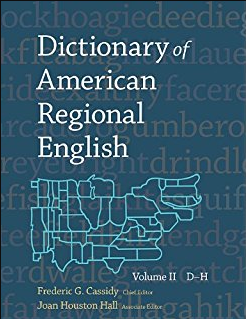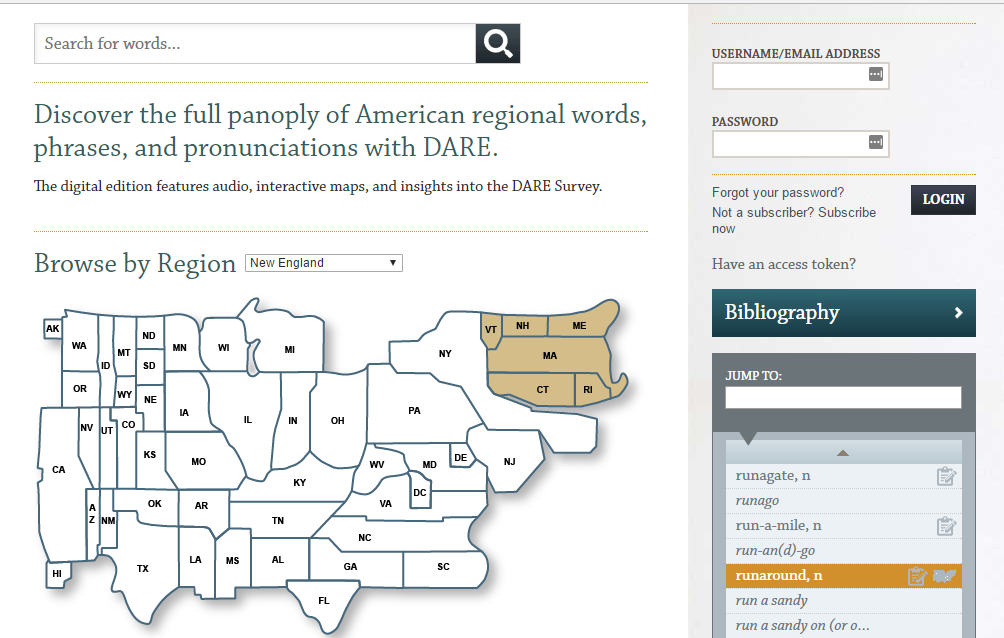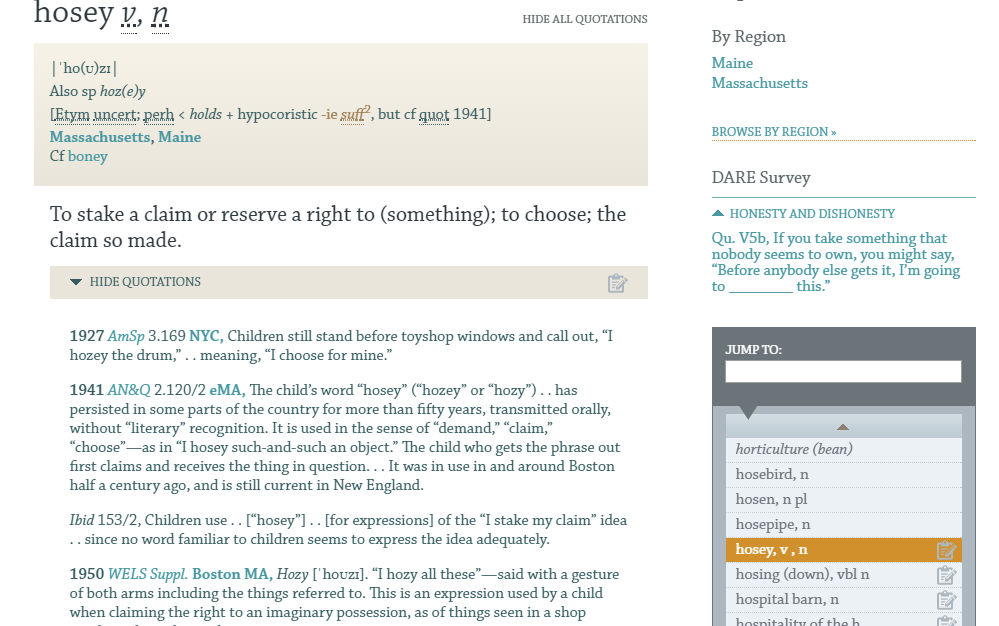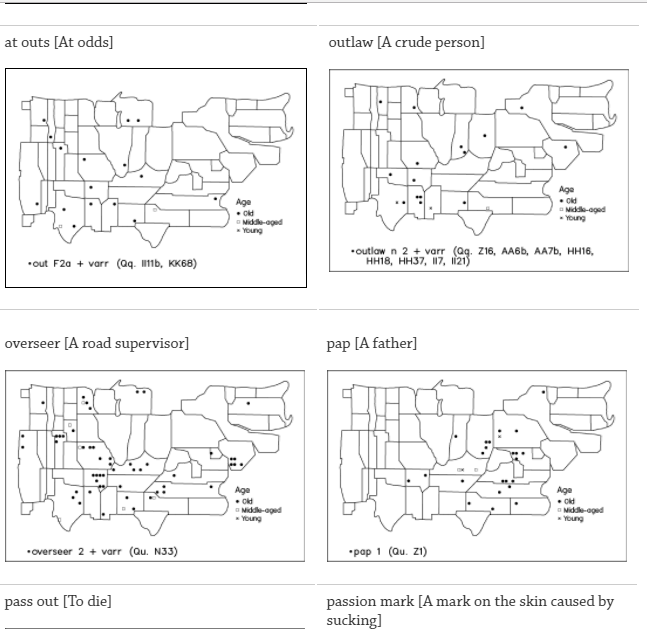DARE to Learn American English Posted by Gary Locke on May 25, 2017 in Culture, English Language, English Vocabulary

What if I told you that American English is so diversified that there are different words and phrases for the same thing not only from region-to-region, but even from neighborhood-to-neighborhood? Let me introduce you to one of the most remarkable dictionaries of the English Language.
The Dictionary of American Regional English, or DARE, documents and celebrates the vagaries and heterogeneity of English as spoken in the US. You probably know that a sandwich made from an oblong roll and filled with meat and cheese is called a sub (or submarine sandwich) in some parts of the US, but is a hoagie elsewhere. Or a cola may be called pop in one region, and soda in another. But you may not be aware that a porch in Boston might be called a piazza in rural New England, just a few miles outside the city. And that same piazza is a veranda at opposite ends of a community in the South. In fact, two neighbors might each have one, but the neighbor at 25 Walnut Street spells it veranda, and the neighbor at 27 Walnut Street spells it verandah. And they are both right!
DARE is not a dictionary of proper words and language, but rather is a document of how Americans say things. It contains the variety of regional vocabulary that you might expect, but it also details how family and friends refer to their surroundings based entirely upon their unique experiences and surroundings.
The Dictionary came to us out of work begun by the American Dialect Society at the end of the 19th century. Until the 1960s, the information they were gathering had been compiled more in the form of notes and casual studies. But, between 1965 and 1970, an exhaustive study was rolled out, in which around 80 professors and graduate students scattered to over 1000 communities throughout the country. They found subjects who had lived in these towns for their whole lives, and asked them to fill out (often with help) carefully worded but comprehensive surveys. From more than 2.3 million interview responses, the inclusion of diaries, letters, novels, histories, biographies, government documents, and newspapers, as well as maps and tables of statistical information, the project took shape.

Finally, in 1975, editing on a dictionary began. However, it soon became apparent that this project was bigger than any one dictionary could hold. Think of it as The Oxford English Dictionary, but for the broad expanse of American culture and heritage. It would require several volumes, regular revisions, a detailed bibliography, and multiple indexes for cross referencing the data. To date, there have been five volumes published. There is also an online, digital version, which strives to not only keep all information updated, but allows for audio samples at the click of a mouse.
To wander through the pages, or the online version, of DARE is to encounter the breadth and scope of a complex nation, as well as the history of a living, ever-changing language. Consider the word hosey, a word I know very well as a lifelong New Englander.

It is a term every child in my neck of the woods understands well, and its first utterance probably dates back many generations. If you hosey something, such as the privilege to ride in the front seat of the car with the driver, you have claimed that right. It is equally understood that once a claim of “I hosey!” has been pronounced, then all subsequent claims are forfeited. While other dictionaries may acknowledge the linguistic existence of hosey, you won’t the depth of research that DARE brings to it.
Words are broken down into 41 different regions, and there are quotes for each word, and etymological origins, if available, are also included. You will also learn the sociological roots and uses of each word. Is it common to a particular age group, sex, race, or class status? And there is much, much more.

DARE is now posting quarterly updates at http://dare.wisc.edu/ which include new entries as well as updates on existing words and phrases.
It is an invaluable resource used by teachers, librarians, researchers, physicians, forensic linguists, journalists, historians, and writers of all types. It also makes for a fascinating journey into the history and culture of America.

Build vocabulary, practice pronunciation, and more with Transparent Language Online. Available anytime, anywhere, on any device.



